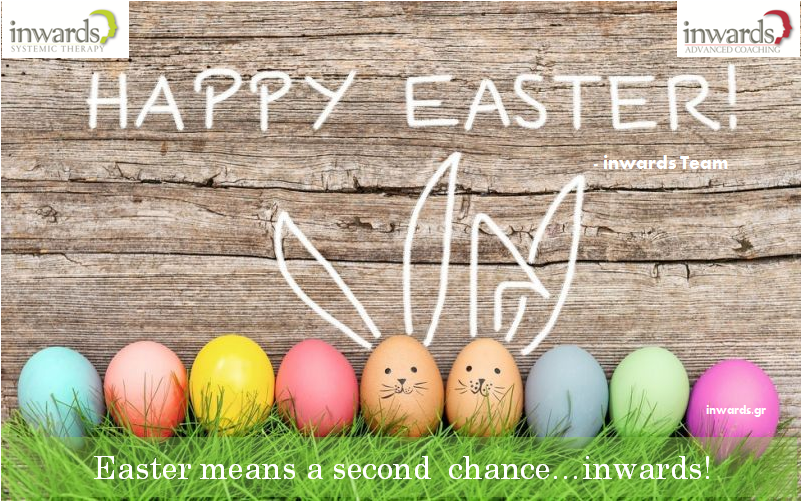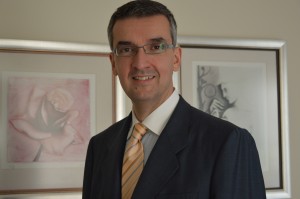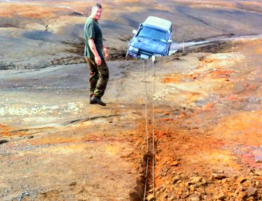
 Written by Yiannis Koutsoumaris – Managing Partner, inwards
Written by Yiannis Koutsoumaris – Managing Partner, inwards
This Easter finds us in the middle of the greatest social crisis we have ever lived, in whatever age we might be, and together with the economic disruption they create an unspecified landscape, usually described as chaos.
|
What is this that disarms us and we call it chaos?
I tend to believe that what we experience as chaos is the result of the rapid movement:
- from the simplicity (or the conventional complicity) to complexity,
- from stability to instability,
- from certainty to uncertainty and
- from having control, to the loss of it.
And this is happening simultaneously in people and systems.
What we observe that dominates people minds, in both coaching and counseling sessions, is the false perception that:
- there are no choices in chaos and
- that in “normality” (before the chaos) there was control.
Such belief blocks our thoughts and actions.
The first truth is that there are choices in chaos. Maybe fewer but mainly more inconspicuous – and this is the problem. However, there are choices.
The second truth is that in “normality” (before chaos) there was no control either. There was the sense of control which created the belief that we could manage the situations, and this was also a part of the problem that has brought us this far.
Therefore, control never exists, but there are always choices. The difference between the normality and the chaos is how we feel, think, see and behave. Therefore, by changing our perspective and understanding our actual position and opportunities as well, we can change behavior and action even in chaos.
Although understanding is not (alone) a solution, however, it leads to a higher level of consciousness by creating conditions of different options and a new meaning to the scope of our lives.
My point of view is that, if these conditions are linked to:
a) taking personal responsibility and
b) the comprehension and impact the individual has on the systems he/she participates and
influences (work, family, etc.)
then we can accelerate our personal progress so much that, although things in our environment remain the same we can get a new, more convenient position with better view to us and our world, more friendly and responsible in relation to the new reality.
Which is however, this new reality that makes the undertaking of personal responsibility essential for today and tomorrow?
In the life field, it is now clear that we cannot rely on or trust traditional institutions, culture, social and educational systems, institutions, social welfare, etc. to solve our problems.
In the work field:
- If we are employees, we cannot entrust our safety and self-image to a large private company, or our assurance to the large State Enterprise and Organization, not even yet the certainty of the non-redundancies policy, the compensation multiplied by three or “the indemnity”. We cannot be sure that our company will train us, promote us, develop us, or shape our position so that our multiannual «comfort zone” will not “narrow”.
- If we are employers, our personal values are involved with the professional ones and the professional achievements with our self-image, so the fear of losing everything and in such a short time leads to a (personal at the beginning) crisis, hardly manageable.
In all the above mentioned cases, our evolution path goes through the assumption of our professional responsibility or/and our personal development. What has brought us this far, is part of the problem and we have to find the ways, power, help or whatever else is needed, to get rid of the childish carefreeness and choose amongst ourselves and systems we participate, what includes additional, fresh, untapped and even better primary potential.
What does potential mean in practice? It means the “Resurrection” of personal responsibility.
Taking personal responsibility means, I write my own life script and I take the responsibility of the leading actor.
On personal level I select and answer :
- What kind of life I want to live?
- What type of relationships I wish to shape, obtain or strengthen?
- Which powerful part of mine shall I offer to others?
And continue by adding the dimension of realism :
- What resources do I have?
- What is the frame of my support?
- How can I strengthen further?
On a professional level, I answer:
- What am I good at? (I am good at something I like, I do it without much effort and perform over the standards, getting satisfaction and recognition)
- What kind of professional I wish to be? What do I appreciate at the work of others and what do I reject?
- How strong professional “weight” do I have today? How much would I like to have? What should I do to achieve it?
- What am I unique at?
- What others have to benefit from me?
- What options do I have? (This question should be the last one)
These questions bring clarity to our inner dialogue and boost our growth because before we act differently we must be able to see differently and challenge what blocks our view. Consequently, we:
- exploit existent parts (other aspects) of ourselves that have been compressed into the subconscious having no contact with them and
- realize what kind of mental paths prevent us from connecting with others and change them to gaining support, recognition and respect, which subsequently will lead us to a higher, level of self-confidence, satisfaction and effectiveness.
“No problem can be solved by the same level of consciousness that created it”Albert Einstein |







